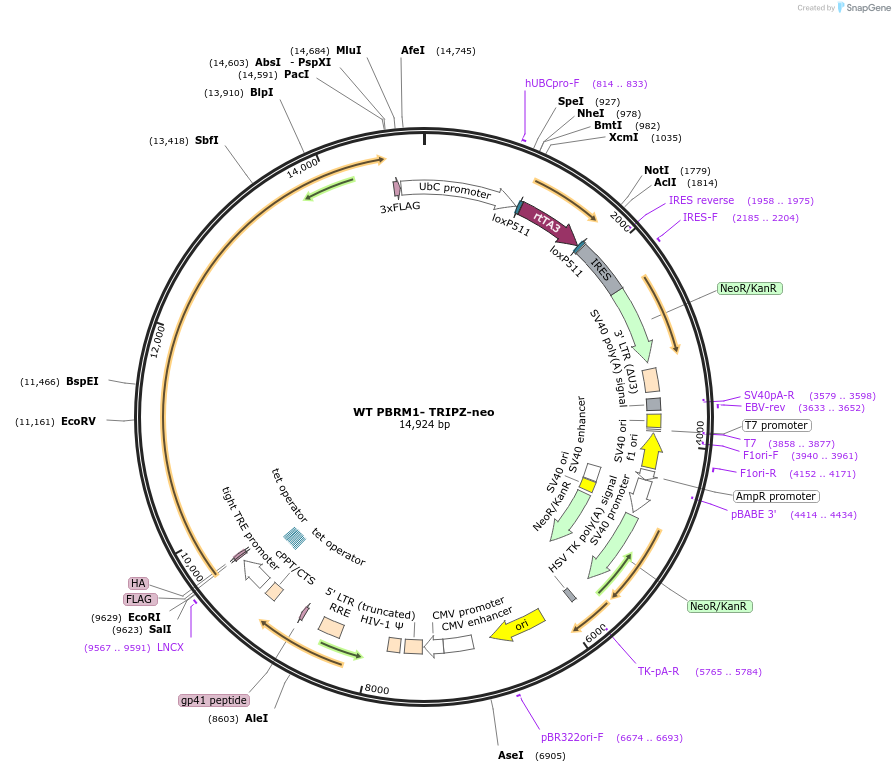-
PurposeMammalian expression, inducible PBRM1
-
Depositing Lab
-
Sequence Information
Ordering
| Item | Catalog # | Description | Quantity | Price (USD) | |
|---|---|---|---|---|---|
| Plasmid | 107406 | Standard format: Plasmid sent in bacteria as agar stab | 1 | $89 | |
Backbone
-
Vector backbonepTRIPZ-neo
-
Vector typeLentiviral
Growth in Bacteria
-
Bacterial Resistance(s)Kanamycin, 50 μg/mL
-
Growth Temperature30°C
-
Growth Strain(s)NEB Stable
-
Growth instructionsPlease grow transformed cells for 2+ days
-
Copy numberUnknown
Gene/Insert
-
Gene/Insert namePBRM1
-
SpeciesH. sapiens (human)
-
Entrez GenePBRM1 (a.k.a. BAF180, PB1, RCC, SMARCH1)
Cloning Information
- Cloning method Restriction Enzyme
- 5′ cloning site AgeI (unknown if destroyed)
- 3′ cloning site ClaI (unknown if destroyed)
Resource Information
-
Articles Citing this Plasmid
Terms and Licenses
-
Academic/Nonprofit Terms
-
Industry Terms
- Not Available to Industry
Trademarks:
- Zeocin® is an InvivoGen trademark.
Depositor Comments
This plasmid is unstable and likely to recombine when grown. Upon receipt it is essential to screen multiple colonies to confirm the intact plasmid is present. Recombined products are not expected to impact viral packaging if the full length plasmid is present.
These plasmids were created by your colleagues. Please acknowledge the Principal Investigator, cite the article in which the plasmids were described, and include Addgene in the Materials and Methods of your future publications.
-
For your Materials & Methods section:
WT PBRM1- TRIPZ-neo was a gift from William Kaelin (Addgene plasmid # 107406 ; http://n2t.net/addgene:107406 ; RRID:Addgene_107406) -
For your References section:
Inactivation of the PBRM1 tumor suppressor gene amplifies the HIF-response in VHL-/- clear cell renal carcinoma. Gao W, Li W, Xiao T, Liu XS, Kaelin WG Jr. Proc Natl Acad Sci U S A. 2017 Jan 31;114(5):1027-1032. doi: 10.1073/pnas.1619726114. Epub 2017 Jan 12. 10.1073/pnas.1619726114 PubMed 28082722



